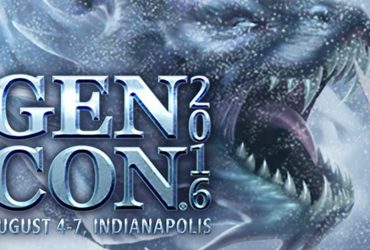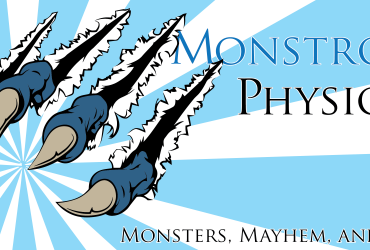Unlike sporting games, board games, card games, or dice games, role playing games are not about achieving victory perimeters, they’re about getting together with friends and doing something (hopefully) fun together.
In my many years of playing role playing games, I’ve seen some pretty fantastic min-maxers – players who make PCs that can do a small number of specific skills/abilities very well. I’ve also come across the occasional player who really sets out to play the most broken, flawed PC that they can manage, while still overcoming the great adversity that the player has made for their little paper avatar before the GM has even stepped in with plot – we used to rib one player that there was a limit to the number of merit points he could get and that there was no real benefit to having twice as many flaws on his sheet.
Most players I’ve encountered play somewhere in between – a class or race they really like or one that they’ve wanted to try out. Sometimes the rules don’t quite work the way we/they hoped or maybe something works super awesome and kind of overpowers the original concept. I personally have a hard time coming up with character concepts in advance. Usually I go for the tried and true then craft my background around how the character feels. One of my all-time favorite PCs was made by someone else and I joined just as an extra pick-up PC then joined the game permanently.
PLAY TO WIN

Zohir, Orphne. Down the Blighted Path, Paizo, 2015.
Do be aware of what is on your sheet and how it works. Talk with your GM about what’s on your sheet and get an understanding of how she interprets how it works. There’s nothing worse than sitting down at a table and discovering that the rules don’t do all the great things you thought they would for your PC.
Take your time, stop to smell the roses, or at least talk to the NPCs before killing them. Admittedly more often than not it’s kill or be killed, but learning what your adversary knows before you have to put them down may be of benefit to the party. And a little secret to all you players who’ve never been behind the screen, game designers love to write all sorts of crazy background information up about those seemingly one dimensional villains that is a wealth of information and insight, well worth taking a couple minutes in game time to let the bad guys tell you a little about themselves. But still kill them, because you don’t want that kind of evil loose on the world. Or maybe you do?
PLAY TO LOSE
I find it interesting watching players put together the possibilities of the story before the PCs have enough information to parse out what’s really going on. As players we usually have a small inkling of what we’re up against, because our GM has told us “We’re playing in Ustalav” or the very title of the AP the GM is holding gives away important information (I feel like I should warn for spoilers here) like “Rasputin Must Die”. However, our PCs are unaware that they’re going to be facing “all the monsters” or even monsters from other worlds.
The difficulty comes with putting aside player thinking to allow the PC to do the thinking. We generally have a desire to succeed, to beat the problem or villain. As a player, it is important to not make major jumps of logic from the handful of things you do know to the final solution. One of the things that can be limiting on that end is rolling dice for knowledge checks, it is frustrating when your dice fail to provide your PC with the information you possess. This doesn’t mean give up, there are always opportunities to learn, don’t be afraid to look for another option. At some point, though you have to go with what you know and make seemingly bad decisions based on bad or lack of information, then you just have to fall with style.
JUST PLAY THE GAME
For players feeling lost and really just not sure which way to go as a PC, it’s okay to admit that. Ask to have a little in character down time, make camp, and discuss what you’ve seen as PCs and what you believe the goals are in game. This gives the GM some insight into what the PCs are thinking and where the roadblocks might be. It also might help to decompress what’s gone on before and give better clarity to an adventure, especially if your table hasn’t been meeting regularly (the holidays wreak havoc on our regular gaming nights). Some groups have a record keeper or note taker who recounts the previous game’s events every game session, it’s a great habit to establish.
As a GM, it is important to provide the players with opportunities to learn the things that will help players get enjoyment from the story you are mutually telling. It is equally frustrating when players go off the path, head out to left field, and then just exit the ballpark altogether. Learning your players’ playing style can help you to redirect without making it look like you’re redirecting them. This may include creating on the fly NPCs, locations, and short quests to put the players back in the right ballpark. For this kind of work, it’s best to have something you’re familiar with and file off the serial numbers – such as a favorite character from a book that you’ve changed genders, race, or other readily identifiable characteristics or a set of brief encounters adapted to the location. Especially in a homebrew, drawing from past adventure encounters provides call back for the players, provides them with guidance to the answer you might be looking for, and makes you look like a genius for having such a well thought out recurring story arc.
GMs need to be careful using this technique, you can’t use the same character too many times – unless you are going for the recurring NPC deus ex machina feel – and certainly reusing a well-known story line can be too transparent. It is always best when the players feel like they’re in a sandbox rather than on a linear plot line. Ultimately that is what any published adventure and most GM written games are, linear stories to get PCs from the beginning to the end, with enough wiggle room to allow some agency and not leaving players feeling trapped. When players push back against the story that they are being presented with, they are feeling trapped and frustrated. It is worth investigating why they feel that way and help to alleviate the feeling that game has become a job. As the GM, the small piece of the world that your players are engaging with is malleable to your designs, things that were missed or forgotten but cause the players to get bogged down can still be uncovered later. Being rigid in your expectations of how players solve a problem can result in an unenjoyable game night or campaign for everyone.
Consider taking cues from television series, which is not unlike what you’re running in your campaign, when things get deep and dark, occasionally show runners throw in a non-canon, humorous, quirky episode. Obviously that may not work in the middle of a dungeon, but taking a night off from the campaign to play a one off that is related but tangential to the story arc – like playing the lead in events that brought the villain’s bumbling minions to last week’s big combat – might help give you and the players a better perspective on what’s really happening. The information remains out of the characters’ knowledge (unless one of said minions keeps a journal), but it will help to refocus what’s going on, lighten some of the grind that some games can become when players and GM become lost in the chaos that is a multi-player game.
Especially for GMs, if you aren’t having fun, chances are your players aren’t having fun either. This isn’t an “us against them” situation, this is a communal storytelling experience. If you’re feeling like the story you want to tell isn’t getting told and the players are lost or bored, the ball is in your court to play the game – play the game the players want or play the game you sat down with originally, figure out a way to get to one or the other. That might mean you have to have a heart to heart with your players and you may have to collectively walk away from the game you’re currently running. Role-playing should be fun for everyone, so go toward the fun.








